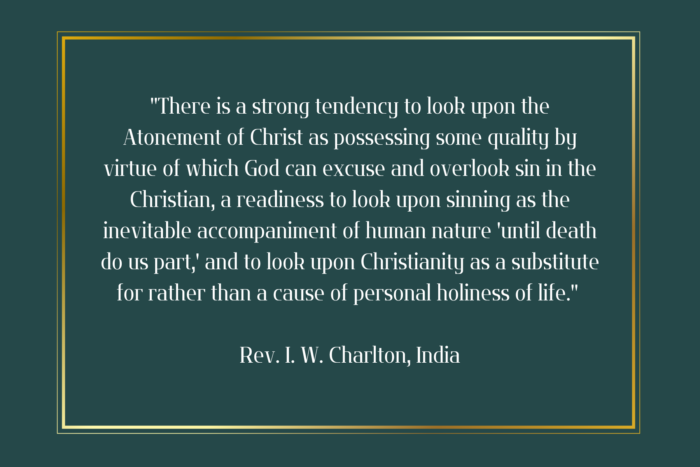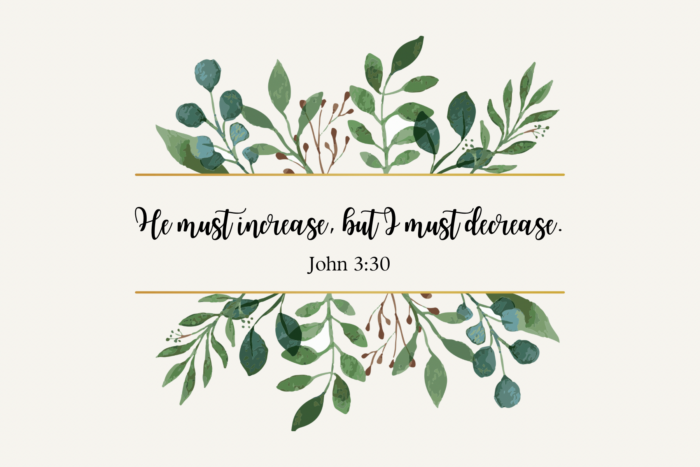Dressed Death is Still Death
There is a phrase used three times in the New Testament that we give little thought to these days. It is the phrase “born again”. Instead we’d rather talk about “accepting Jesus” or “say a prayer”. But what is this phrase?
This idea of being born again means we have new life! Our old heart of stone is turned to flesh (Ezekiel 36:26) and we are a new creature in Christ; old things are passed away, behold all things become new (2 Corinthians 5:17).
But if we are honest, there is something called “cultural Christianity” and it is without any power at all. And, in fact, this false religion inoculates people against true, biblical Christianity and deceives them into believing they have that golden ticket to heaven and can go on living however they want.
I.W. Charlton puts it like this—
“There is a strong tendency to look upon the Atonement of Christ as possessing some quality by virtue of which God can excuse and overlook sin in the Christian, a readiness to look upon sinning as the inevitable accompaniment of human nature ‘until death do us part,’ and to look upon Christianity as a substitute for rather than a cause of personal holiness of life.”
Oh, how true this is! How many do we know who claim to be a “Christian” and yet show no interest in holy living or pleasing the Lord. Instead, they create a god of their own devices, a god who is all love and no judgement. A god who has provided a way for them to continue on in their sin and their worldliness. The only thing this god requires is that you love others and be a nice person.
That is NOT the God of the Bible.
I am currently reading a book by Amy Carmichael called “Things as They Are”. In this book she shares the very real challenges of being a missionary in the late 1800s/early 1900s India. They are countless and they are beyond difficult. I had no idea.
But the one chapter I did not expect to read was about the nominal Christians of the country. Apparently there was a group of nominal “Christians” but they weren’t alive in Christ.
They had no interest in Jesus Christ or His commands. They were content to live in their deception. They were always nice and polite. And totally disinterested in the truth.
Amy writes this about this group of people in India—
I have told you how much we need your help for the work among the heathen; but often we feel we need it almost as much for the work among the Christians. Over and over again it is told, but still it is hardly understood, that the Christians need to be converted; that the vast majority are not converted; that statistics may mislead, and do not stand for Eternity work; that many a pastor, catechist, teacher, has a name to live, but is dead; that the Church is very dead as a whole—thank God for every exception. We do not say this thoughtlessly; the words are a grief to write. We humble ourselves that it is so, and take to ourselves the blame. It is true that the corpse of the dead Church is dressed, just as it is at home, only here it is even more dressed; and because the spirit of the land is intensely religious, its grave-clothes are vestments. But dressed death is still death.
Dressed death is still death. People can use all the right words and phrases; they can be the nicest people in the world; they can serve in their churches and communities; but dressed death is still death.
I read her words and I realized she is describing the American church. And that this isn’t a new problem. There has been this lie in the church for a long, long time. This lie that I can be as worldly as I want; that I can continue in my sin…and, this, because God loves me and forgives me.
The scripture passages about forsaking our sin and the world are conveniently ignored. The passages about denying ourselves and taking up our cross in order to be a true follower of Christ are ignored. They want a one-sided, selfish religion where God gives everything.
But this isn’t true Christianity. When God changes us, He gives us a new heart and He changes our desires. We no longer want to sin or to love the world. And we begin our journey in turning away from these things. Some do this slowly and others change seemingly overnight, but all who have been truly redeemed love God and His Word and, deep down, we desire to obey Him—even if we don’t always “feel like it”.
I, along with Amy, do not write these things thoughtlessly. I write them with much grief. But I also write them because they are true. And if it leads just one of you to have a hard conversation with someone about their soul or to start praying fervently for someone who claims Christ but has no fruit, then I know it will have not been in vain.
While we can’t judge the salvation of another person, God plainly gives us, in His Word, the description of a true follower of Christ. If someone does not match that description in any way, then we have reason to pray for them and to have those hard conversations born out of our deep love for someone. And that none of us enjoy.
I know Amy took a lot of grief for writing the truth about the mission field. And, in fact, she talks in the book how the people didn’t want to hear the truth of the mission field but just wanted all the happy stories. And yet Amy had the courage to write the truth because it was the truth.
This love for happy, positive stories has grown until people can hardly bear to read anything negative. And, in fact, those who dare to speak the negative are demonized.
And, yet, the truth is still the truth. Dressed death is still death.
Life is made up of wonderful truths and hard truths. The Bible is filled with wonderful truths and also hard truths. May we have the courage to speak both. And, in so doing, may God use our lives for His honor and glory.







